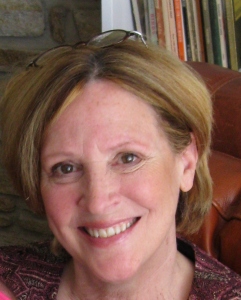On the Memorial Days of my childhood, I’d walk three blocks to Broadway and stake out my spot in front of Sparky’s Barbershop, waiting for the parade to begin. The booming sound of the marching bands gave me butterflies. I envied the girls who could walk and catch their batons in the air at the same time. My dad taught us to stand each time the flag came by, not just the first one.
And then we’d go home and eat hamburgers and potato salad. Second only to Christmas, maybe, Memorial Day was right up there for me.
By the time I moved to Baltimore in my late 30s, the excitement reserved for holidays now belonged to my kids. Christmas was still big, of course, but they hadn’t been to many parades. And Memorial Day meant the weekend our community pool opened, an event for my children that overshadowed anything else.
Our house was near a cemetery, which I used as a geographic marker for anyone coming to visit: Go up the hill on Padonia Road. As soon as you begin to see the cemetery on the left, hang a right.
My first spring there, I was working in the garden when I thought I heard a Sousa march. It was coming from the cemetery’s direction. I had some time on my hands, I guess, because I followed the music across the street and walked through the gates. It wasn’t until I saw the wreaths and the politicians that I remembered it was Memorial Day.
I was a little ashamed of myself about that. I was the daughter and daughter-in-law of WWII veterans, men, who though they rarely spoke of it, had both served proudly in the Pacific. Back in Massapequa, I’d always been the first to get to Broadway, making sure I had my spot to watch the color guard and applaud the veterans who would wave from convertibles. I should have thought of Memorial Day as something more than an extra day in the garden.
I took a spot in the back where I wouldn’t be noticed. I watched the wreaths solemnly placed, and — with what I hoped was the right amount of decorum, despite the slightly dirty knees of my jeans — I waited until the bagpipers filed out.
That was my first Memorial Day in my new city. There would be lots more of them — I lived in that house a long time — but none would ever happen again the last weekend in May. I went back to the cemetery often. And I never left without learning something.
I found the grave of a man who sang in my church choir. I watched him — in his blue robe — carry the bass section single-handedly. His life was filled with tremendous accomplishments, personal and professional. The plaque that documents his life chooses to tell the world he was a WWII veteran. I never knew.
Another man’s grave is adorned with a commemoration of Iwo Jima. He had lived a long life and died at a dignified age. Now here he was, wanting us to remember that part of his story. So on an ordinary Wednesday, with no Sousa march, no honor guard, I did.
There is a whole section for soldiers who died in Vietnam — all men my age — who would by now have grandchildren and be looking forward to retirement. I could always tell when their parents had been there. In spring they had carefully manicured the little lawns that bordered their sons’ graves. They rearranged the flowers. In winter, they left tiny Christmas wreaths and jolly miniature snowmen they stuck in the ground.
Being there reminded me that these were ordinary people called to do the extraordinary. I don’t know how they mustered up the courage to charge a hill or hold a line somewhere far from home when they missed their families and feared everything around the next corner.
I only knew that when I was there, I was in the presence of those who figured out a way. Men, who like my dad, said, “Remember, we stand up every time the flag goes by, not just the first one.” Or men like the ones at rest in the cemetery.
It’s true that little girl from Massapequa who stood cheering for the parade didn’t understand the meaning of Memorial Day. But she tried to make up for it on all the other Memorial Days when she lived in the house near the cemetery. On the afternoons when she walked through those gates.



